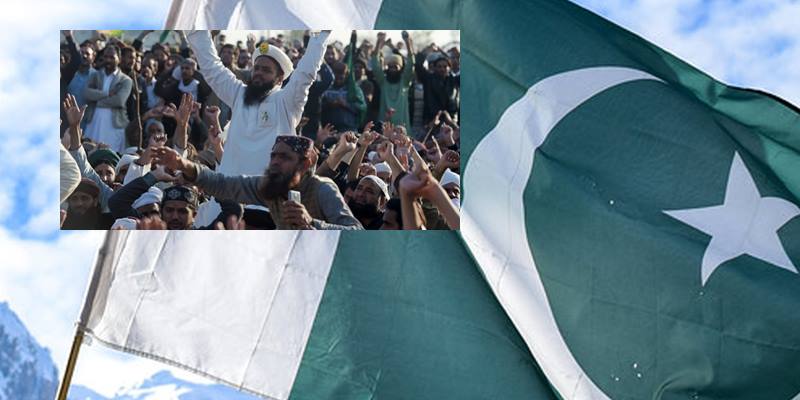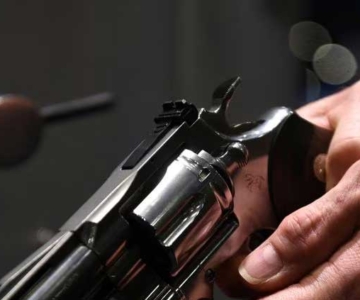Taseer’s brutal murder has exposed every faultline of contemporary Pakistan
The brutal assassination of Governor Punjab, Salmaan Taseer by a staff member of Punjab’s supposedly, professional ‘elite force’, has virtually exposed every fault line of contemporary Pakistan. That a constitutional figurehead of a province with no executive authority or legislative power could be murdered simply for dissenting with the extremist worldview, is shocking to say the least. However, the tragedy has compounded further, much like the dark denouement of a Greek tragedy. The well-organized, ruthless and all-powerful extremist forces have jumped into the fray, and challenged the actuality of a cold-blooded murder. Clerics of all shades and varieties have tried to condone this act of barbarity and reactionary lawyers have promised to defend ‘Ghazi’ Mumtaz Qadri – a self-confessed killer – free of cost. Above all, public opinion has never been shamelessly manipulated in Pakistan as it is being done today by sections of electronic media who have gone out of their way to dilute the immensity of this event, and short of condoning it, have attempted to justify the motives of the criminal Qadri and his followers (which alas, are in the millions across Jinnah’s Pakistan).
Identity Mess
Much has been said about Pakistan’s warped identity, and it is a cliche to say that it is a tottering society in search of an identity. It should be clear to all and sundry now that large numbers of its residents, thanks to state-led indoctrination and a poisonous educational system, have espoused the right-wing interpretation of Pakistan as a theocratic state and that too, of a particular variant of Sunni Islam. This dangerously imagined polity excludes a large number of Muslims who belong to different schools of thought within the plural and complex range of Islamic faith. The minorities in Pakistan have suffered throughout their history, and their invisibility and insecurity is now a given fact of life.
Taseer struggled to raise voice from his public office and challenged the hegemony of Islamicist discourse, which makes this imploding ‘fortress of Islam’ as a repository of a faith-based nuclear bomb, thousands of armed militants ready to die in Jihad and irrationality driving all forms of decision-making – from foreign policy and economy, to municipal issues (such as the regulation of loud speakers in neighborhoods). In effect, Jinnah’s Pakistan is long dead and Zia’s Pakistan lives on in its full glory.
State Failure – No Longer a Myth
We have been rejecting the various pronouncements of state failure in the past, terming them as conspiracies to destabilize Pakistan. Leading western think-tanks, experts and some Pakistani analysts have been alerting us all in the past. But in the imagined fortress of Islam, such realistic prognoses have found little resonance. An extremist mindset has infiltrated state agencies, from the sensitive to the less sensitive, and the governments of the day along with their large, compromised and unwieldy bureaucracies can do nothing in the face of this ideological onslaught. The policeman who killed Taseer was removed from sensitive duties. He crawled back into the system and manipulated his posting as Taseer’s personal guard. These are the parables of our times: the protectors are turning into the killers and the defenders are turning into attackers. A day later, when Pakistan’s ‘last man standing’ (Taseer’s description of himself posted on Twitter) was brought back from the dehumanized precincts of Islamabad to Lahore, all state-employee Mullahs refused to offer his namaz-e-janaaza (funeral prayer). The mighty Federal Government and the besieged Provincial Government took no action against these recalcitrant bigots who were not satisfied with the 29 wounds that killed an enlightened man within a few seconds. Worst of all, the ruling party i.e. the PPP appears to be in a state of ideological chaos, as it has termed the murder ‘a political assassination’, while it is a simple case of extremism at its ugliest. Senior ministers of the PPP are on the defensive, saying that they would kill blasphemers themselves, or that they are better Muslims than the mullahs. Taseer’s murder has churned out a new tragedy by the hour.
Progressive Political Space?
In the last two years, Salmaan Taseer had emerged as a pillar of enlightenment and rationality in Pakistan’s opportunistic and dismal political discourse. He had consistently taken positions against Talibanization, growth of militancy in the Punjab, blasphemy laws, minority and women’s rights. He expressed his views without fear and displayed no sign of regret, even when his party distanced itself from his unadulterated, principled stance on such issues. This progressive political space, which had already shrunk after the death of Benazir Bhutto and the ancillary rise of the Taliban, is now receding at an alarming speed. The myth of Deobandi sect as being the only variant of militant Islam has also been exposed, as the otherwise peaceful Barelvis have openly expressed their penchant for violence over the issue of blasphemy. Unless the political forces join hands to counter this new wave of Islamism, Pakistan is drifting towards a stage where Al Qaeda and its local hosts would find public support in reshaping the old Pakistan in favour of a new radical, totalitarian country.
Political Instability and Further Chaos?
Whilst the extremists are busy pursuing multiple agendas of harassment, violence and deepening of their discourse, the so-called moderate political parties are engaging unwittingly in a crazy, death dance. The Muttahida Qaumi Movement, the Pakistan Muslim League (Nawaz) and the JUI-F are scrambling for power and patronage. Either they are oblivious to the mammoth challenges in front of them, or their short-termist goals have beclouded their political understanding of a Pakistan which is changing quite rapidly. This new Pakistan hosts nearly 105 million inhabitants under the age of 26 with inappropriate skills, little or no education and a shrinking economy which only provides black market options as means of subsistence and survival. The black market, or what the experts would sanitize as informal economy, among other things, comprises smuggling, criminal gangs, militant groups and urban mafias, further adding to the impending chaos in the country.
The irrational political parties want the PPP government to refrain from raising taxes, increasing fuel prices and balancing its books as it wants the government to fail in the short term. Such lack of vision and sagacity is truly alarming and perhaps the day is not too far when the extremist ideological narratives will be the only option for Pakistanis to cherish. It is a separate matter that such ideological upheavals seldom lead to ‘solutions’ in the long term. However, we seem to be doomed to follow a trajectory that history has time and again shown as a natural outcome of oppression, economic exploitation and arbitrary modes of governance.
Taseer’s murder therefore, is not an isolated incident. It fits well into the game plan of Pakistan’s move towards extremism where the liberal or the moderate is a fictional character: this curious species has to either espouse a grand exclusivist narrative or be silenced.
The Curse of Geo-Politics
2011 may actually be the last chance for Pakistan and its ruling classes to make existential choices. In June 2011, the exit plan by the US/NATO might be finalized in consultation with Pakistan’s security establishment. The current features of this plan include power-sharing arrangements with the ‘good’ Taliban. In the short term, that may be an elusive victory for Pakistan’s strategists. However, in the long term, it means that Talibanization of Pakistan would be unstoppable, creating more fissures within the state policy. The Taliban rulers in Kabul would not be content with limited area of operations, as they would seek power space in Pakistan’s Khyber Pakhtunkhwa and the fortification of ideological emirates in the Federally Administered Tribal Areas. How would any strategy to counter extremism be effective in such a scenario? Several analysts are of the view that the pursuit of such policies at home and abroad may worsen Pakistan’s current predicament in the medium term. Similarly, the refusal to engage with India exacerbates the irrational worldview that drives an extremist mindset. It is in 2011 that we need to determine where we would like to go: towards a more rational future, or remain embroiled in a state of perpetual fight with history and the plural values of our society.
We have reached a point where if the ‘silent majority’ – a phrase which has become questionable in the context of mainstream support for the murder – does not take a united stand against the forces that are out to impose a neo-fascist ideology on the denizens of the country, then Pakistan as envisioned by Jinnah will permanently cease to exist. The political forces and the military establishment have the last chance to stop Pakistan from slipping into the abyss of a totalitarian system, which idealises barbarity, promotes further intolerance and alarms the world by managing a lunatic society with nuclear weapons. About time, we all woke up.
A shorter version appeared in The News on Sunday (January 9)



